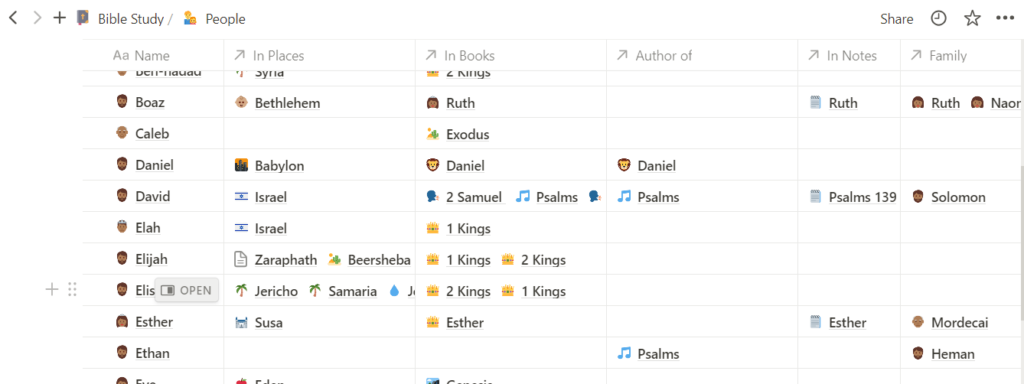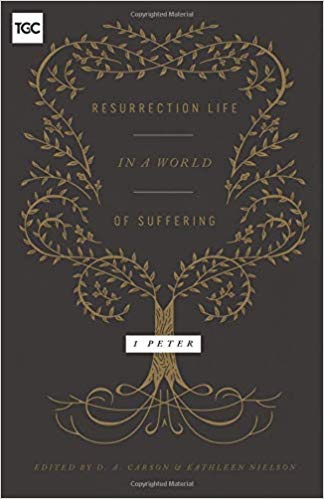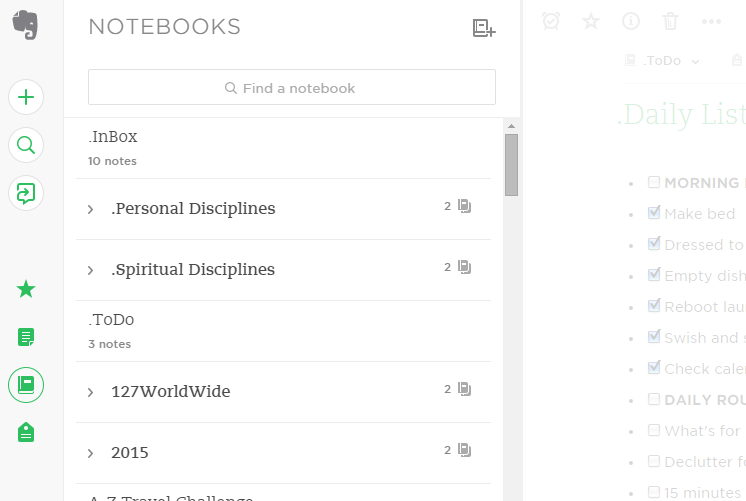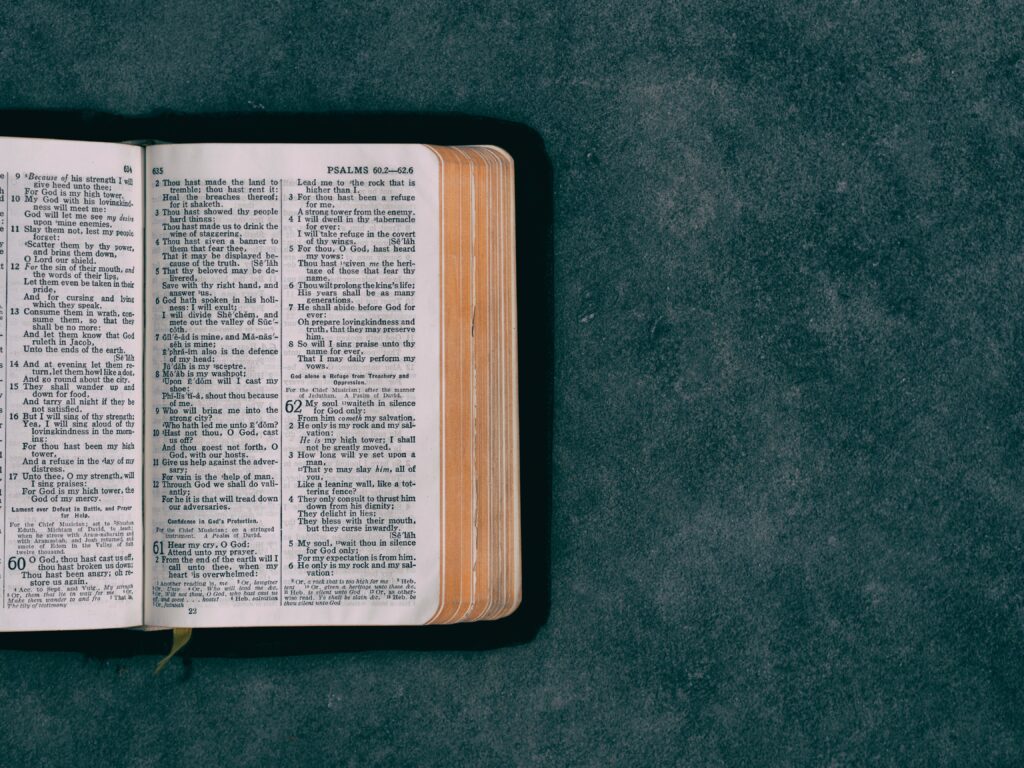
I’ve used Notion for the past few years, as a productivity tool to organize both my personal and my work life. It has worked out very well for me – I’m able to capture not just my task list, but reminders, bits of information, projects….I’m now a huge Notion fan. Most recently, I’ve used a free Notion Travel Template to plan out our upcoming two week trip to Alaska – itineraries for each day, meals planned out, Airbnb confirmations and instructions, embeded Google Maps – the works.
A few months back, I stumbled upon a Bible Study template that looked very interesting. I had been considering ways I could possibly use Notion for my daily scripture work and had actually started to build my own template. But when I found this Bible Study Notion Template originally designed by Vanderlei Viera and expanded upon by Nora Conrad, I duplicated it into my Notion Workspace (which is very easy to do), and I’ve used it ever since.
What I’ve enjoyed the most, at least for right now, is the mapping as I build out pages for people, places and concepts in the Bible. Notion has powerful linking functionality (everything is based on databases), so I’m able to tie things together very easily.
As an example, I’m able to connect Elisha with the places he visited, and the people he interacted with. This has helped me increase my Bible knowledge and led me to consider things differently than I have before. And as I build out pages for each person, place or concept, I’m able to add little things I find here and there to each page – I’ve added (public domain) classical art depictions of places, scenes or people, poetry (check out Malcom Guite!), definitions, random thoughts, and of course relevant scripture.
The Notion Bible Study template has not and does not take the place of my use of Logos, a powerful Bible Study tool – instead, it has enhanced it. I would say my notes in Logos are more theological in nature, while my work in Notion is more academic – but, the very cool thing is that the combination of both creates a deeper picture of verses, stories and passages then I’ve experienced before. (Note: I typically write out my prayers – and the medium I use to do so varies widely – sometimes in Logos, sometimes in Notion, sometimes hand-written, sometimes in a Word Doc that I can password protect and store.)
Here’s a screenshot of a section of Notion I’ve worked on this past week.
Each Book (1 Kings, Esther, Exodus) page contains some information added by the template authors, including a book summary, links to both ESV and CSB translations of the book, category and narrative.
The template’s front page has some very helpful links, and easy to access links to the various databases; there is even a way to embed a Spotify or Amazon play list.
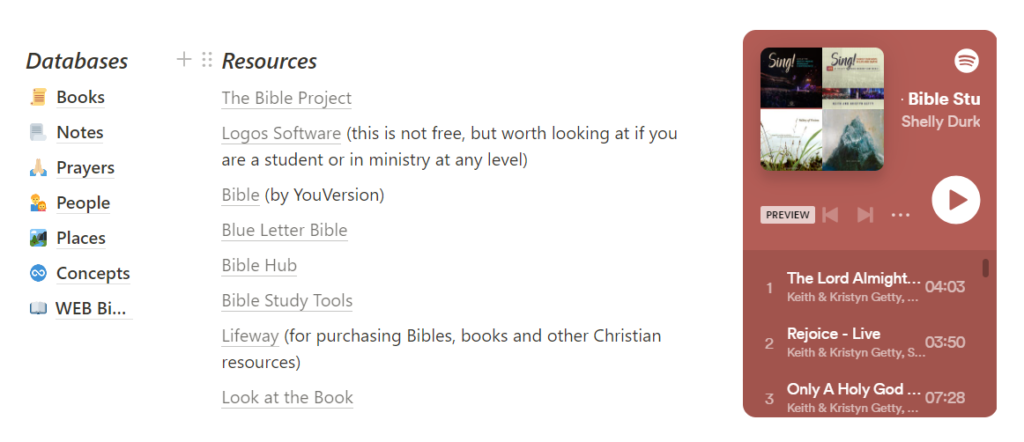
Interested in checking it out?

